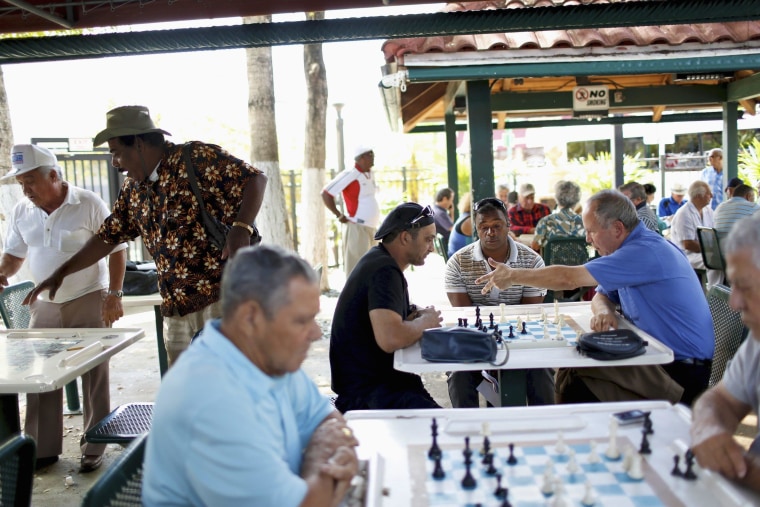Slightly over half of Miami-area Cuban Americans favor lifting the U.S. embargo against Cuba, as well as lifting travel restrictions and establishing diplomatic relations, according to a Florida International University poll released Tuesday. The poll is the latest among recent studies showing increasing support among U.S. Cubans for more engagement with the island nation.
The survey found the younger generation as well as more recent immigrants from Cuba are much more willing to ease current policies. While slightly over half (52 percent) favor lifting the embargo, the number goes up to 62 percent among those 18 to 29 and 58 percent among Cuban Americans in the U.S. since 1995.
Similarly, 90 percent of young Cuban Americans and 85 percent of those who left Cuba after 1995 favor diplomatic relations with the island's communist government versus 68 percent of older adults.
On keeping Cuba as one of only 4 countries designated by the U.S. as a state sponsor of terrorism, 63 percent of Cuban Americans believe Cuba should remain on the list, whereas a solid majority (65 percent) of 18 to 29 year olds would like to see Cuba taken off the list.
The FIU Cuba poll was started in 1991. It polled 1,000 Miami-Dade County Cuban-American residents over the age of 18. It was conducted in English or Spanish.
In a forward on the current survey, authors Guillermo J. Grenier and Hugh Gladwin write: "This survey shows that members of the Cuban diaspora in Miami-Dade County have diverse views of how they would like the U.S. government to deal with the Cuban government. Some support continuity, others support a change of course. Most favor a mixture of both."
